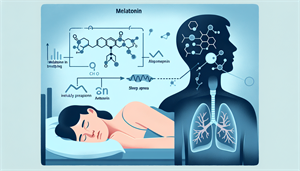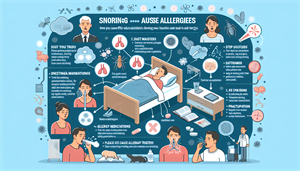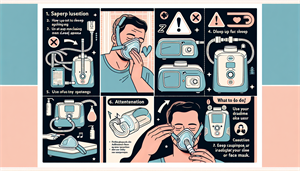
Can Melatonin Cause Sleep Apnea?
Taking melatonin may prompt concerns about its effect on sleep disorders, notably sleep apnea. But, can melatonin cause sleep apnea? This article sifts through evidence to address your concerns, aiming to reveal what melatonin means for those at risk of or currently facing sleep apnea.
Key Takeaways
-
Melatonin, known as the ‘sleep hormone’, is not a strong sedative but instead signals the body to prepare for sleep. It can help improve sleep quality if taken 1-2 hours before bedtime, but the right dosage varies based on individual factors.
-
While melatonin supplements can aid with sleep disorders, they may exacerbate sleep apnea by further relaxing throat muscles, leading to increased airway blockage.
-
Consequences can be heightened when taken with sleep apnea medications, hence consulting with a healthcare provider is crucial.
Understanding Melatonin and Its Role in Sleep
Melatonin, often dubbed the ‘sleep hormone’, is synthesized by the pineal gland and holds the key to our sleep-wake cycles. However, it’s not a potent sedative as most people may think. Instead, it signals the body to prepare for sleep and, in the right amounts, can enhance the quality of sleep, especially for those grappling with sleep disorders.
The Pineal Gland and Melatonin Production
Nestled deep within the brain, the pineal gland is the powerhouse of melatonin production, thus playing a pivotal role in sleep medicine. The process of melatonin biosynthesis is intricate, with multiple enzymes involved, and the end product - melatonin - regulates our sleep-wake cycles, including REM sleep.
How Melatonin Supplements Work
Melatonin supplements are a popular over-the-counter sleep aid, often referred to as otc sleep aids. These supplements can be beneficial, particularly for individuals navigating through short-term sleep disorders or those dealing with preoperative anxiety. Once ingested, melatonin undergoes metabolism in the liver, and its effects can be felt within 20 minutes, thus helping alleviate sleep disorder symptoms. However, for optimal results, melatonin should be ingested 1 to 2 hours before you plan to fall asleep for the night.
The Relationship Between Melatonin and Sleep Apnea
Melatonin, despite its sleep-promoting benefits, can potentially make sleep apnea worse. Its muscle-relaxing properties can intensify the likelihood of airway collapse, particularly in untreated sleep apnea cases. This is why individuals with sleep apnea must practice caution when considering the use of sleep aids like melatonin, as these can exacerbate the core obstruction of the condition and lead to an abnormal melatonin secretion pattern.
Melatonin's Impact on Throat Muscles
Melatonin’s muscle-relaxing properties have a downside. They can worsen sleep apnea by further relaxing the throat muscles, already relaxed in sleep apnea patients, thereby obstructing the airway and deteriorating the condition.
Interactions With Sleep Apnea Medications
Melatonin’s interaction with medications prescribed for sleep apnea can potentially exacerbate the condition. The muscle relaxation induced by sleep apnea medications can be intensified by melatonin, which also induces muscle relaxation. This can amplify the effect and potentially worsen obstructive sleep apnea symptoms. Therefore, before starting melatonin, particularly if you’re already taking sleep apnea medications, a discussion with a healthcare provider is recommended.
Safety Concerns and Precautions When Using Melatonin
Regarding melatonin, adhering to the recommended dosage, typically between 1-3 mg, is crucial. It’s also important to avoid long-term use of melatonin supplements without consulting a healthcare provider, especially for individuals with sleep apnea. Additionally, exploring non-pharmacological approaches for sleep apnea management, such as lifestyle changes and medical treatments like CPAP therapy, can be beneficial.


